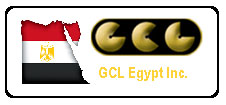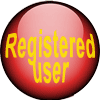|
|
- Hardware
- Essential components present in a computer environment (such as a CPU, motherboard, HDD, SSD, etc)
- Units of measure, representing time and size of bite
- Computer memory, understanding types of memory (ROM, RAM)
- Input and output devices, channels for communicating
- Mobile Devices
- Software
- Understanding programs that are used on a daily basis
- Types, system vs. application software
- Systems software, various operating systems, functions and comparisons (Windows, Mac OS, Linux etc)
- Operating data
- Files and folders, commonly used data, its functions, variability and transfer
- Word processing, understanding ways of formatting text
- Databases, using databases and their advantages
- Telecommunications
- Telecommunications systems, understanding various types, their function and use
- Electronic signals, electronic equipment, analyzing signal transmissions
- Numerous media compared, their functions and uses
- Networking, core networking procedures, LAN, WAN, MAN, ADSL, P2P…
- Wireless revolution, standards for wireless networks and diverse wireless devices
- Mobile phones
- Functions, the future of communication and its comparison with computing
- Smartphones, next generation in mobile communication, knowledge of different operating systems and their use (such as Android, Symbian, Windows Mobile, etc)
- Internet
- Concept, understanding of the WEB, internet providers and browsing
- Internet protocols, understanding TCP/IP, URL, DNS and domain name
- Internet communication, e-mail, IMs, Chat and conference (Facebook, Twitter, Skype, etc)
- Internet vulnerabilities, dangers from the Internet
- E-business
- The principle of e-Business, internet as new and exciting channel for business
- The principle of e-Commerce, electronic marketplace as an efficient market where buyers and sellers can benefit from lower prices and lower costs
- The principle of m-Commerce, development of customer-oriented tendencies
-
Different classification of e-Commerce system (B2B, B2C, B2E, C2C, G2G, G2B, etc)
- Information Systems and Management
- Types of Information Systems, knowledge on different types of Information systems (TPS, MIS, DIS, ISS, IOS, etc)
- Benefits of using an information system as a powerful business tool (reduction of costs and time due to organization of information, processing data, etc.)
- ICT strategy to fit the business strategy, understanding the necessity of implementing ICT strategy in organizational goals
- Security
- IT security essentials, understanding IT terms necessary for computer safety (firewall, anti-virus software, anti-spyware software, etc)
- System vulnerability and abuse, understanding the weak points of a system (browsing and chat history and open ports as starting points for potential wrongdoings)
- Defence strategies and safekeeping, ways to defend against potential threats
|
|
|





















